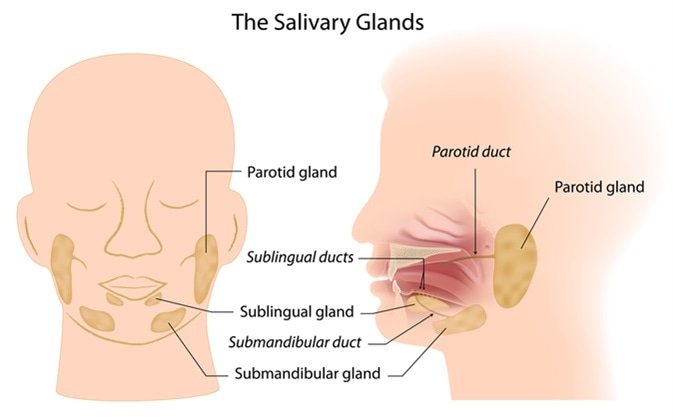What you need to know about Submandibular Gland Surgery
Contents
- 1 What you need to know about Submandibular Gland Surgery
- 2 What does the Procedure Involve?
- 3 How Long Should I Stay at my Destination?
- 4 What’s the Recovery Time?
- 5 What About Aftercare?
- 6 What’s the Success Rate?
- 7 Are there Alternatives to Submandibular Gland Surgery?
- 8 What Should You Expect Before and After the Procedure
Submandibular gland surgery involves taking out the entire submandibular gland and, sometimes, some of the surrounding tissue or bone. The submandibular gland is the second largest salivary gland in your body. It is about the size of a plum that is located below the lower jawbone (mandible).
Submandibular gland surgery is usually performed to treat an infection that happens if the tubes that drain saliva become blocked.
This surgery is also a type of salivary gland surgery. Your doctor may recommend you undergo this surgery if you have a tumor or cancer on your submandibular gland and they believe that they can remove cancer or tumor completely.

What does the Procedure Involve?
Submandibular surgery is performed under general anesthesia, which means you will be asleep throughout the procedure. Therefore, your doctor will ask you to avoid eating or drinking anything 6 hours before the operation.
Your surgeon will start the procedure by creating an incision in the upper part of your neck, just below the jawline. The size of the incision is about 5cm long (two inches). Through the incision, your doctor will remove your submandibular gland.
If the procedure is performed to remove cancer, your surgeon will remove the entire gland and possibly some of the surrounding tissue or bone. Depending on the location and size of cancer, your surgeon may need to remove some of the nerves that pass through or located near the gland as well. These nerves control the movement of your tongue, the lower half of your face, sensation, and taste.
If your gland needs to be removed because of infection that is caused by a stone, your doctor may need to remove the stone by making an incision inside your mouth.
Once the gland has been removed and all additional procedure has been completed the wound is closed with surgical stitches. At the end of the surgery, your doctor usually places a small tube through your skin into the underlying wound. This tube is used to drain any blood that may collect and will be removed on the morning following the surgery.
How Long Should I Stay at my Destination?
After submandibular gland surgery, you may need to stay in the hospital for one to four nights. In some cases, it is possible that you are allowed to leave the hospital on the same day. Plan to stay in the local area for at least 7 to 10 days because you need to attend a follow-up appointment within a week following the surgery. During the follow-up appointment, your doctor will monitor your healing and remove the stitches.
What’s the Recovery Time?
The area around your jaw may be sore for a few days after the surgery. There may also be swelling and bruising. You may be able to return to work 1 week after recovering from the surgery. However, your doctor may advise you to avoid any strenuous activities, such as heavy lifting and vigorous exercise, for two weeks.
What About Aftercare?
A post-operative instruction will be given before you leave the hospital. It is important that you follow everything in the instruction to avoid complications. Here are some things you need to keep in mind:
-
Keep the wound dry for the first week, so be very careful when washing or shaving.
-
Once your doctor tells you that it is okay to get the wound wet, gently wash the area every day with warm, soapy water, and then pat it dry. If the area rubs or weeps against clothing you may cover it with a gauze bandage. Make sure to change the bandage every day.
-
If your doctor prescribed you pain medicine, take it as directed. If not, ask your doctor if you can take over-the-counter medicines.
-
Your doctor may prescribe antibiotics. Make sure to take them as directed and do not stop taking them just because you feel better.
-
If the procedure is performed to treat cancer, you may need to attend regular checkups to ensure that cancer has not come back.
What’s the Success Rate?
Submandibular gland surgery is a generally safe procedure with a high success rate. Still, there are some risks and side effects that you need to be aware of. These include:
-
Bleeding
-
Infection
-
Pain
-
Nerve damage
-
Dry mouth.
Make sure to talk to your doctor about any concerns you may have.
Are there Alternatives to Submandibular Gland Surgery?
For cancer patients, your doctor may recommend radiation therapy and chemotherapy. However, this depends on the stage and location of your cancer. Discuss the best option for alternative treatment is important if you do not wish to undergo surgery.
What Should You Expect Before and After the Procedure
Before submandibular gland surgery, you may have a condition in your submandibular gland, such as cancer of infection. These conditions can cause uncomfortable symptoms. They’re possibly life-threatening as well. After the procedure, the symptoms should be gone and you may be cured of your illness, letting you enjoy life the way you used to.
For an in-depth analysis of a Submandibular Gland Surgery Procedure, watch this short video.
To check prices or to book a Submandibular Gland Surgery Procedure, in Thailand or anywhere else in the world, head on over to MyMediTravel now!

